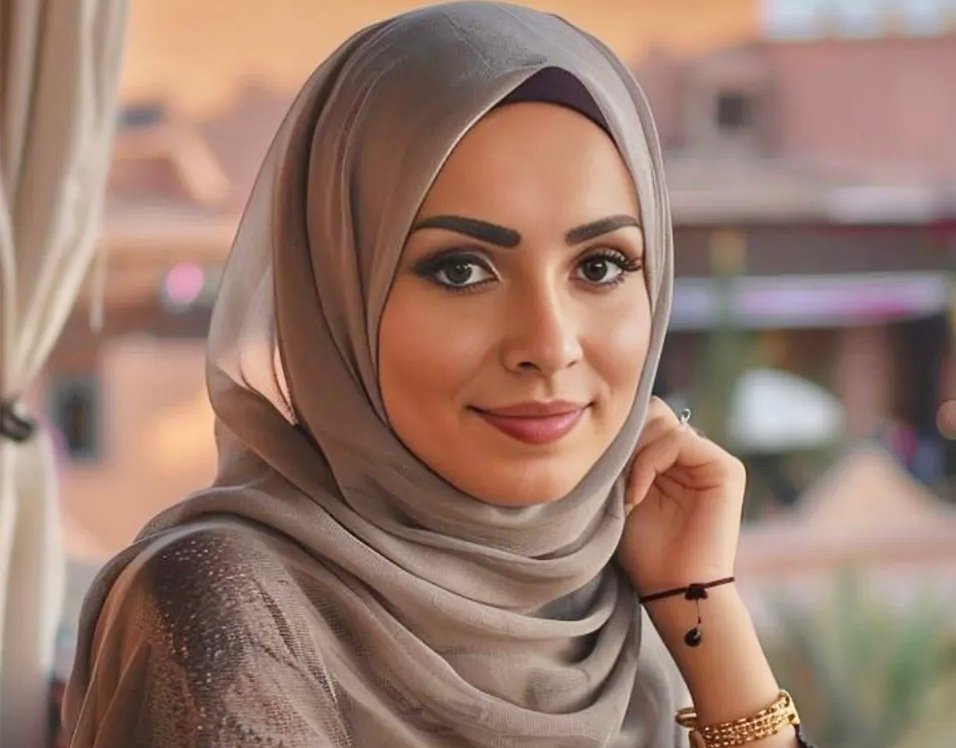In the ever-evolving world of beauty, a new phenomenon is emerging that is set to revolutionize the way we think about beauty standards. Welcome to the age of the “meta face,” where artificial intelligence (AI) is redefining what it means to be beautiful. From AI-generated beauty pageants to hyper-perfectionism, the beauty industry is facing a new challenge: should brands conform to these new standards or challenge them?
At the forefront of this trend is the rise of AI-generated beauty pageants. These virtual competitions use AI algorithms to create digitally perfect faces, which are then judged on their beauty. The results are staggering, with some AI-generated faces being deemed more beautiful than their human counterparts. But what does this mean for the beauty industry, and should brands be embracing this new standard of beauty?
For some, the rise of the “meta face” is a natural progression of the beauty industry’s obsession with perfection. “Beauty standards have always been influenced by technology,” says Dr. Sarah Jones, a beauty industry expert. “From Photoshop to social media filters, we’ve always been pushing the boundaries of what it means to be beautiful. AI is just the next step in that journey.” However, others argue that this new standard of beauty is unhealthy and unattainable.
“The idea that we can create a digitally perfect face using AI is just not realistic,” says beauty blogger, Emily Wilson. “It’s creating a new standard of beauty that is impossible for humans to achieve. It’s like we’re saying, ‘You’re not good enough, but this digital version of you is’.” Wilson’s concerns are echoed by many in the beauty industry, who worry that the rise of the “meta face” will lead to a new wave of body dissatisfaction and low self-esteem.
Despite these concerns, some brands are already embracing the “meta face” trend. AI-generated beauty influencers are becoming increasingly popular, with some brands using them to promote their products. But is this just a gimmick, or is there a more profound shift taking place in the beauty industry? According to Dr. Jones, the rise of the “meta face” is just one part of a larger trend towards hyper-perfectionism in beauty.
“We’re living in a world where perfection is the ultimate goal,” says Dr. Jones. “We’re using AI to create perfect faces, perfect bodies, and perfect skin. But what does this mean for our mental health and wellbeing? Are we creating a culture where people feel like they’re not good enough unless they’re perfect?” These are questions that the beauty industry will need to grapple with as the “meta face” trend continues to gain momentum.
In conclusion, the rise of the “meta face” is a complex and multifaceted trend that is challenging the beauty industry to conform or challenge. While some brands are embracing this new standard of beauty, others are warning of the dangers of hyper-perfectionism and the impact it could have on our mental health and wellbeing. As the beauty industry continues to evolve, one thing is clear: the “meta face” is here to stay, and it’s up to us to decide what that means for our beauty standards and our sense of self.
The impact of the “meta face” trend will be felt far beyond the beauty industry. As AI-generated beauty influencers become more prevalent, we can expect to see a shift in the way we think about beauty and perfection. But what does this mean for our relationships with ourselves and others? Will we become more accepting of imperfection, or will we continue to strive for an unattainable ideal?
As the beauty industry continues to grapple with the implications of the “meta face” trend, one thing is clear: this is just the beginning of a much larger conversation about beauty, perfection, and identity. Whether we conform to this new standard of beauty or challenge it, one thing is certain: the “meta face” is a trend that will continue to shape and influence the beauty industry for years to come.
The “meta face” trend is also raising important questions about the role of technology in shaping our beauty standards. As AI-generated beauty influencers become more prevalent, we can expect to see a shift in the way we think about beauty and perfection. But what does this mean for our relationships with technology and with ourselves?
In the end, the “meta face” trend is a complex and multifaceted phenomenon that is challenging the beauty industry to conform or challenge. Whether we embrace this new standard of beauty or reject it, one thing is certain: the “meta face” is a trend that will continue to shape and influence the beauty industry for years to come.
Source: Africa Publicity








